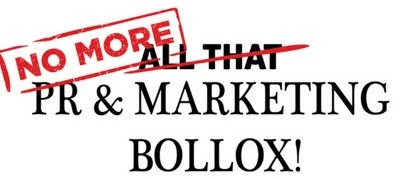.jpg)
.jpg?width=675&name=hacking_your_own_pr%20(1).jpg)
This guest post, originally published on Medium, is printed here with the author’s permission. You can follow the author on Twitter at @rojospinks.
As a journalist who often writes about tech, I get a lot of PR emails coming through my inbox. As a quasi digital nomad who has been writing about the trend of location-independent working since 2013, a lot of those emails concern that particular topic. Much of the time, they reference a piece I wrote in the Guardian in 2015, which found its way into the Wikipedia references for “Digital Nomad,” leading me to believe all these people are emailing the same 14 journalists ad nauseam.
On the whole, I am not as hostile to PRs as some journalists I know are. After all, I’m a freelancer, so if you are offering me something like a novel story idea, access to a cool person, or an invitation to an event where I might find story ideas or information that other people don’t have, that’s a win for me. Sure, much of the PR-journo dance is completely ludicrous — the catch phrases are my favorite; you don’t “work” for someone in PR, you “look after” them — and I avoid gratuitous “taking” from PRs in terms of lunches or freebies unless it’s actually something I would write about without their help. But most of the time, PRs are a helpful asset to doing my work.
However, over the past two years, I’ve noticed a trend of dudes with names like Justin and Brian emailing me from their remote-based startup, pitching me a company that I’ve never heard of. These are not professional PRs from agencies. Instead, they are tech bros who are, I suspect, DIY-ing their own PR.
In their eyes, they are one Guardian story away from being the next Airbnb. However, they are also a “lean startup,” without a need or care to hire actual professionals to do those silly analog world things like HR and PR. All they need is to do a little old-fashioned outbound marketing. Surely, there’s a hack for that?
That is, ostensibly, where I come in. But here’s the thing about successful PR: it actually requires a basic understanding of how journalism works. That is why, in my experience, the best PRs always seem to be previous journalists. The Brians and Justins demonstrate to me with astonishing predictability that they actually have no idea what doing my job entails. So, in an effort to prevent myself from sending any more bitchy emails back, here is some advice. My goal here is to be earnest, even if the decision to write this post was born out of the frustration that occurs when I read one too many buzzwords in a single sentence:
- WTF is your USP
Let’s start here, because this is the most common infraction. If you’re lucky enough that I’ve opened your email, you better demonstrate in the first 50 words WHAT ON EARTH YOU ACTUALLY DO. This has previously been called the “Ronseal Moment.” In other words, your company has to do what it says on the tin. You should be able to sum that up in ten words, at most, preferably without using any buzzwords. Better yet, I’d rather you pitch me on Twitter in 140 characters or less (seriously, if you can’t do that, you might wanna go back to the drawing board.). Ultimately, if I don’t know what your company does within 30 seconds of opening your email, I’m hitting delete. Also, please don’t say “Netflix of X, Uber of X”; it’s 2016.
Once the above criteria has been met (this is very rare) I don’t really care that much about the rest of your email and I definitely don’t want to open an attachment. What I do want to know is how you present yourself on the internet and what people are saying about you. If you have thirty followers and three tweets plus grainy Instagram photos, that tells me something about whether or not I should proceed further. So, with that in mind, link your social accounts in your email to make that job easy for me.
- Understand the difference between a topic and a story
A topic is an idea, while a story has a “so what?” The “so what” is why anyone should care. The truth? Most people on this earth do not care that you launched a company. But if your company’s USP addresses some larger trend or social ill that is not normally talked about, you should tell me that. If your company is single-handedly pointing out the need to change a problematic piece of legislation, you should tell me that. Don’t tell me the what, tell me the so what.
Note: this is the hardest point on this list. It’s actually not really your job to come up with the story—that’s my job. But you increase your chances of coverage if you help me get there. Sometimes, sending along relevant studies or data is helpful (but exercise restraint here). Most of all, just understand that “X launched a company that does Y” and “digital nomads exist; here’s niche service for them” are not stories I can sell. The vast majority of tech bro PR pitches I receive assume that these are.
Related: Sorry, but don’t pitch me an interview with your well-monied white male founder/investor who has been working on a yacht for six months. This is interesting only to him.
Also related: Event coverage is basically not a thing in the current freelance media landscape. The publications that have the resources or need to cover events send staffers to do it, so don’t waste your time with me.
- Understand that I’m doing the same thing you’re doing to me, to my editor
Look, I know pitching is hard. I do it every day to editors who are busier than either of us are. In order to have my stories placed, I fundamentally have to respect that editors are the busiest people on the media pyramid. I have to make it immediately apparent why they should give my idea more than a moment’s glance. In other words, I can’t bury my point in the fourth paragraph. Neither can you. Respect my time, don’t write 500 words of what you can say in 150, and for god’s sake do not spam me. If it is not immediately apparent this email was directed specifically to me and tailored to who and what I write for, I’m hitting delete (just as an editor would do to me).
- Just don’t be arrogant
I’ve lost count of the amount of times I’ve uttered the phrase “Lord give me the confidence of a mediocre white male” in response to a tech bro PR pitch. Don’t assume I should care; make me care. If that sounds hard, it’s because it is (that’s perhaps why PR is an actual profession). Also be polite, proof read, spell my name correctly. You know, basic stuff.
Tip #3: Just remember that the journalist you are dealing with is open to a good pitch, but it’s your job to do your homework and work out a short, concise and clear set of reasons why they should care!
If you want to learn more about hacking your own PR, getting your messaging right, liaising with journalists and how PR fits into your marketing, please see these links below for more PR tips and tricks:
How does PR fit into your website marketing?
Corporate messaging: Take a tip from Ronseal
Knowing your Journalist in the PR world
Tips for dealing with journalists in the digital age
If you'd like to receive the latest 'All that PR & Marketing Bollox...Explained!' blogs straight to your inbox every week, you can subscribe below:




Submit a Comment